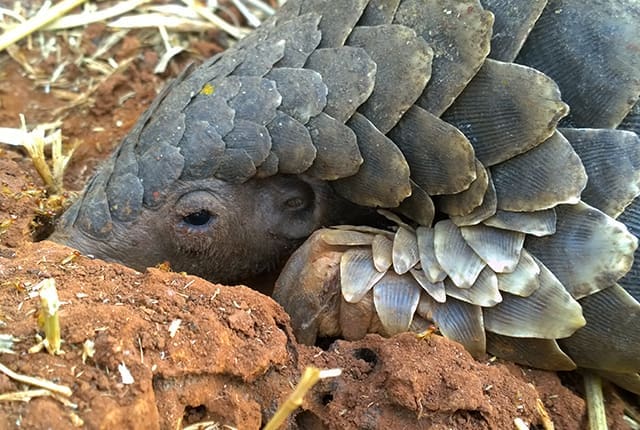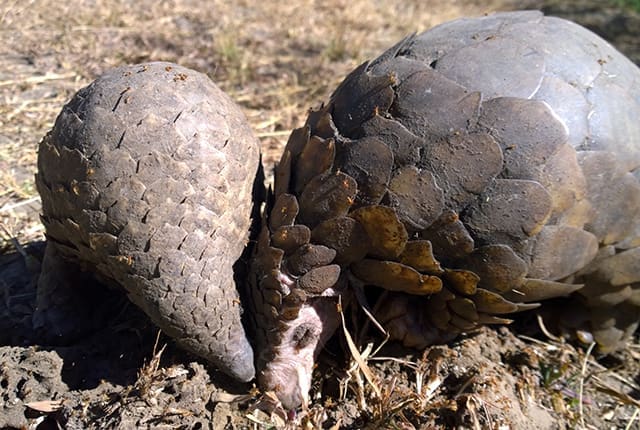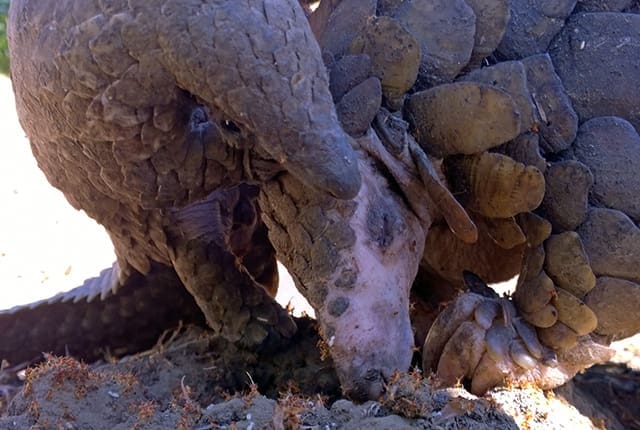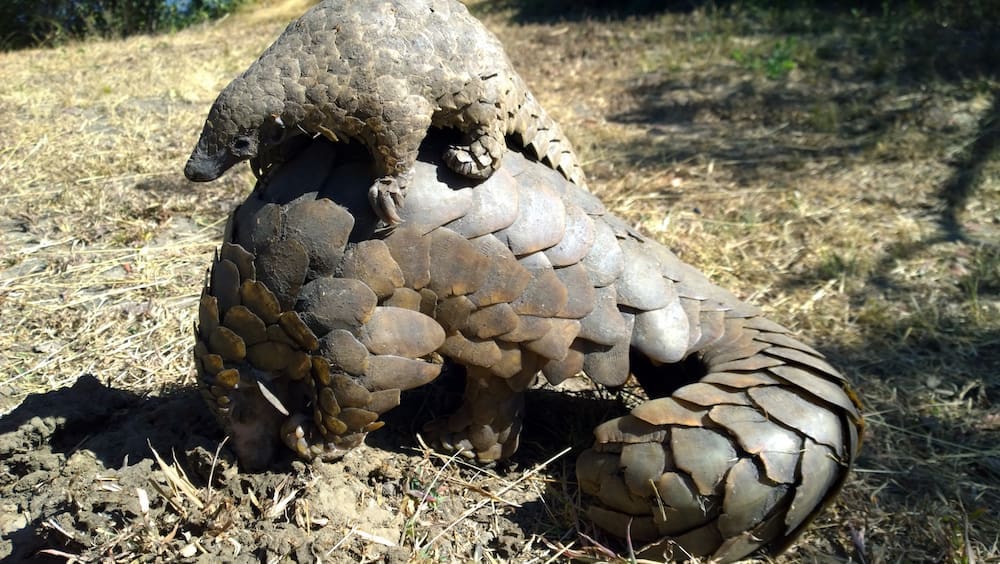
You may have heard of this strange, nocturnal little creature, but most have not. The plight of the Pangolin is receiving good publicity in South Africa right now and no less so here in Zambia, where last year alone the Zambian Department of National Parks and Wildlife (DNPW) with support from Wildlife Crime Prevention (WCP), seized 70 Pangolins destined for the curio, medicine and bushmeat market – 65 were seized alive and successfully released back into the wild by DNPW.
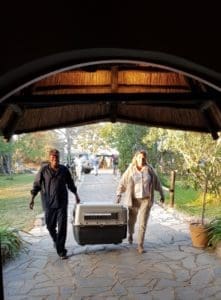 Pangolins are the most trafficked mammal in the world right now and here at Mukambi Safari Lodge, we not only assist with the release of these scaly little anteaters, but we are also on a mission to raise awareness globally of the sad decline of these adorable mammals.
Pangolins are the most trafficked mammal in the world right now and here at Mukambi Safari Lodge, we not only assist with the release of these scaly little anteaters, but we are also on a mission to raise awareness globally of the sad decline of these adorable mammals.
Pangolins are not dangerous to humans and in fact don’t have any teeth, only an incredibly long, and very sticky, tongue that is adapted to feeding on termites and ants. They are quite fussy eaters, choosing specific ants and only a few species of termites to feed on – but feed they do; consuming billions of the little critters every year and keeping local populations in check and the ecosystem in perfect balance.
Anyone lucky enough to see one will notice that they are mainly bipedal; often walking only on their hind legs while the front limbs and tail are held off the ground and are used as counter-weights for balance. It might be this fact that causes their head to sway from side to side when they walk. Their tails drag along the ground leaving unusual prints for trackers to decipher. They are also good swimmers and climbers.
However, if you give one a fright it will more than likely roll up into a ball to protect itself, it’s this behaviour that gives the Pangolin its’ name which comes from the Malay word “pengguling” meaning something that rolls up.
Sadly, research shows that at least one pangolin is killed per 11 km of electrified fence annually. Add this to the numbers that are captured and sold to Asia to appear on menus as Pangolin foetus soup or to local chiefs as prized gifts and you have a rapidly declining population across the globe.
Scales are also sold individually as traditional lucky charms or for ailment cures; If only consumers knew that the scales are made of exactly the same material as our dead finger nails, Keratin, then perhaps their medicinal value and subsequent demand for them would reduce.
If you would like to learn more about the Pangolin or find out how you can help, please visit the following websites:
Tikki Hywood Foundation – https://www.tikkihywoodtrust.org/
The African Pangolin Working Group (APWG) – https://www.africanpangolin.org/
